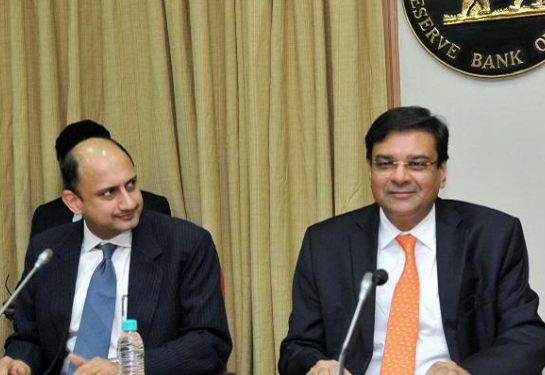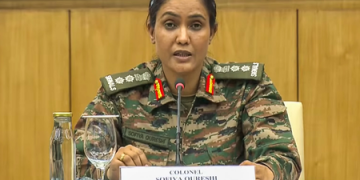Ajit Ranade
This past week saw the publication of two books by two senior former central bankers. Former RBI Governor Urjit Patel published his book called Overdraft, which is dedicated to the Indian saver. This was much awaited from someone who was otherwise extremely reticent about speaking up while in office. Within a week, it became one of the top-ranking non-fiction books. There was much buzz about its content since Patel had chosen to be silent since he left RBI abruptly in December 2018.
The other book is by former RBI deputy governor Viral Acharya, who left six months later without completing his full tenure. His book is titled Quest for Restoring Financial Stability in India, and is a collection of his writings and speeches, with a long preface. Together, these two were known as hawkish, but determined to clean up the banking system. In many ways, they were doing a job; of cleaning up the traditions established by former governor Raghuram Rajan.
Patel had served as Rajan’s deputy. The trio had an image of being too academic, strongly intellectual, and outsiders to the system. They were, in my view, “inflexible” and not pragmatic.
Acharya was in the eye of the storm, due to a strongly worded, controversial speech he gave a couple of months before Patel’s abrupt departure. In that speech, he emphasised the importance of nurturing the autonomy of the central bank. He concluded his speech with an ominous warning, “Governments that do not respect the central bank’s independence will sooner or later incur the wrath of financial markets, ignite economic fire, and rue the day they undermined an important regulatory institution.” In the preface to his new book too, he reiterates that excessive monetary and credit stimulus during the earlier part of this decade had endangered financial stability. Acharya also says that Governor Patel had quit prematurely because of attempts by the government to undermine the autonomy of the RBI.
One of the key issues described in some detail in Patel’s book is the dilution of the Insolvency and Bankruptcy Code process that he instituted to tackle the problem of rising bad loans. Rather than depend on a case-by-case approach and negotiations between banker and borrower, wherein both parties had incentives to “ever green” loans, the RBI insisted on transferring bad debt cases to the IBC process, even with a one-day of default. This was the famous February 2018 circular, which created quite a stir.
The strict rule meant that defaulting promoters risked losing control of their companies to new owners or to liquidation. It also put pressure on banks to prevent such cases landing up in the IBC process. The circular was challenged and eventually struck down by the Supreme Court. After this, the banking system is back to a case-by-case approach and this has been a setback to the speedy resolution of non-performing assets (NPA) cases.
This means that if the NPA is not resolved, the provisioning will keep mounting, and more and more capital will get stuck on the balance sheets of banks. Hence, unless extra capital is injected into the bank, its capacity to make fresh loans for new borrowers and new projects gets constrained.
Also, a larger NPA ratio means that the bank needs to reap profits from a smaller portion of the loans, which means that it has to charge higher interest rates. Thus, the non-resolution or tardy resolution of NPAs has implications for the banking system as a whole and to its financial stability too.
As if in tandem with the two books by these central bankers, here comes the report by the RBI on financial stability. One of the most sobering conclusions of this report is that the gross NPA ratio in India’s banking will rise by a full 4 percentage points from 8.5 in March 2020 to 12.5 percent in March 2021. That means an estimated Rs 4 lakh crore of loans are going to turn bad in this year. Of course, this is the year of the pandemic and recession. Despite measures like easy liquidity, monetary easing, and generous moratoriums for loan repayments, the RBI expects a surge in the gross NPA ratio. If the downturn is more severe, the stress test conducted by RBI officials indicates that the ratio may rise to 14.7 per cent. Such a high NPA ratio will seriously endanger financial stability.
Since nearly three-fourth of Indian banking is in the public sector, a rise in NPAs will call for the need to recapitalise banks. This has to come from the Centre’s fiscal resources which are already stretched owing to falling GST and income tax revenues, and a shrinking base of nominal national income.
There are also other competing demands on the fiscal system, for clearing pending payments to enterprises, tax refunds, direct cash payment to poor households and GST compensation to be paid to states, as per the agreed formula.
As bank balance sheets get stretched, it can make the depositors nervous, and they may form a beeline to banks. This can put severe stress on bank liquidity, and the panic can spread like a
contagion. Similarly, non-bank
finance companies which also face rising NPAs may find it unable to inject fresh capital, causing the NPA problem to worsen. This can have a domino effect, as was seen in September 2018 with the failure of ILFS.
Systemically, large banks and non-banks need extra vigilance and supervision from the bank regulator, the RBI, to prevent such spill-over alarms. The solution to restoring financial stability and earning the confidence of depositors and savers is spelt out in both Acharya’s and Patel’s books. The call of the hour, as the books hint, is for instilling market discipline (IBC process for NPA resolution), early recognition and disclosure of defaults, refusal to too much forbearance in diluting treatment of defaulting borrowers, and keeping adequate ammunition in the RBI balance sheet to deal with sudden shocks, abrupt reversals of capital flow, or emergency rescues. The two books and the RBI report are timely and cautionary reminders about paying attention to the financial stability of the Indian economy.
The writer is an economist and senior fellow, Takshashila Institution. The Billion Press.






































